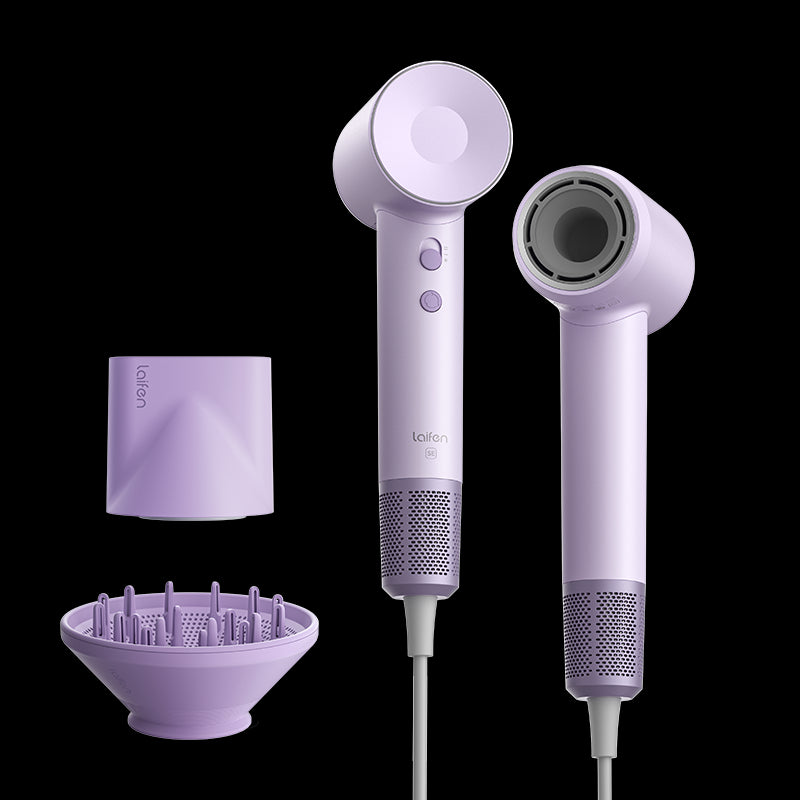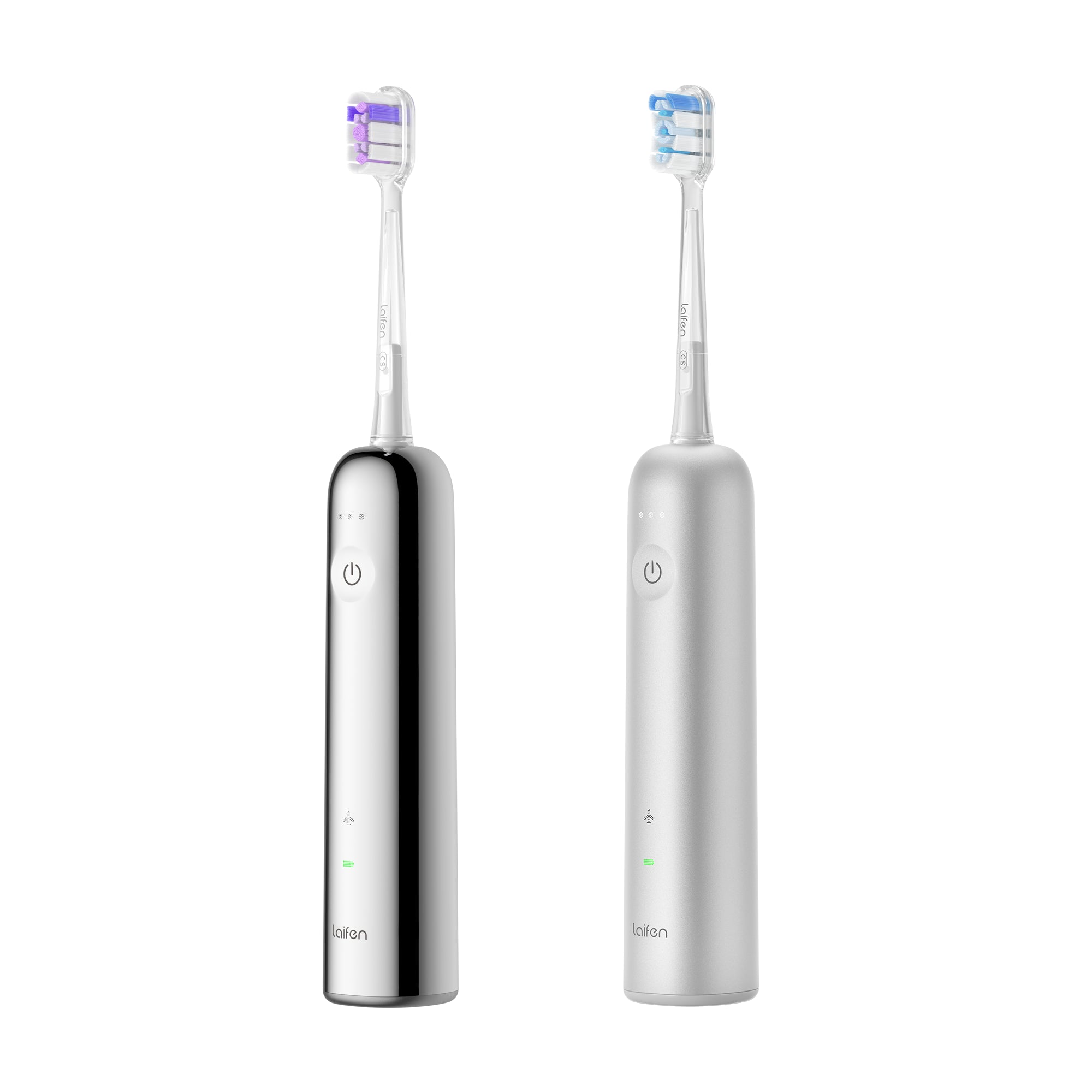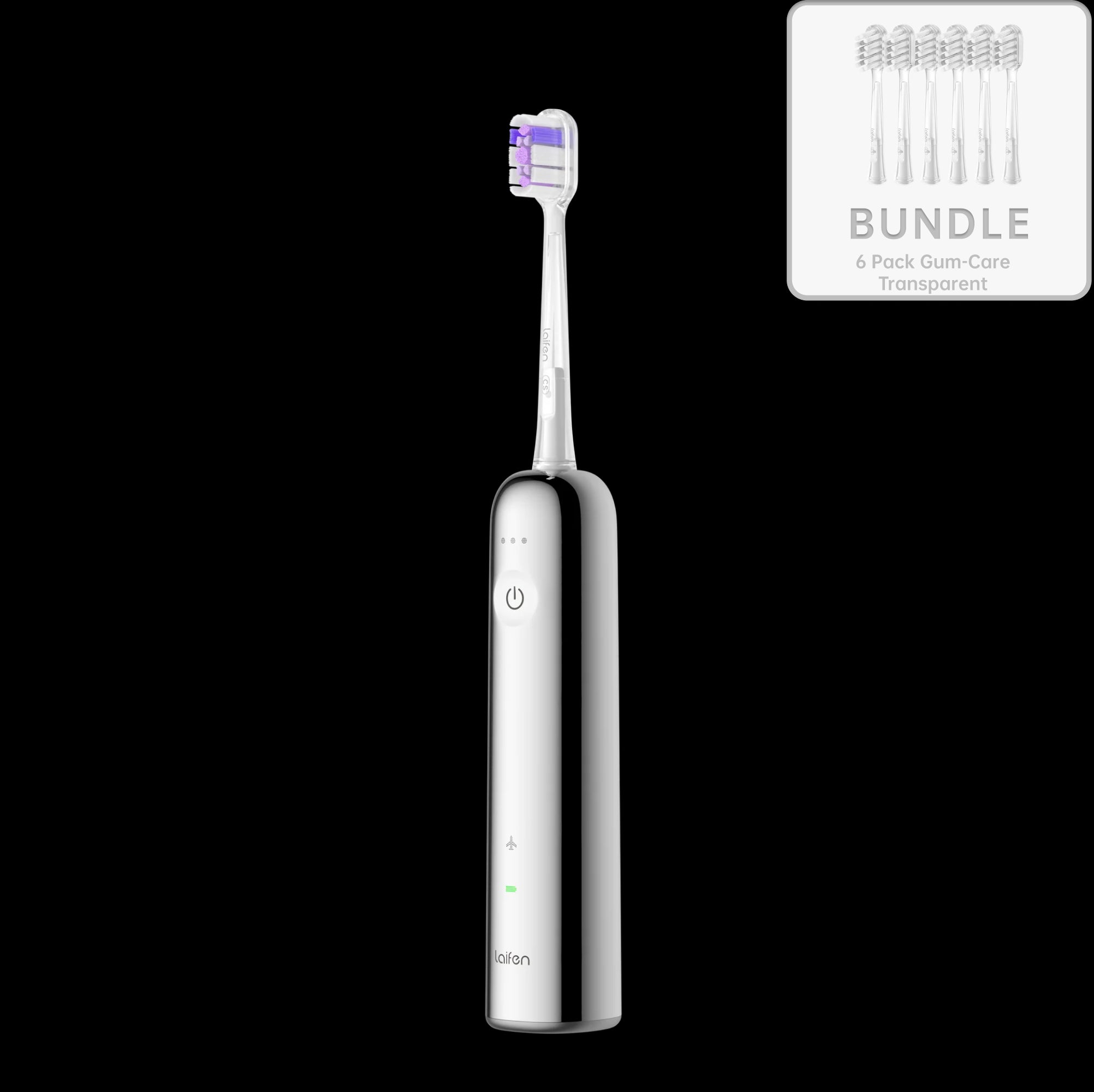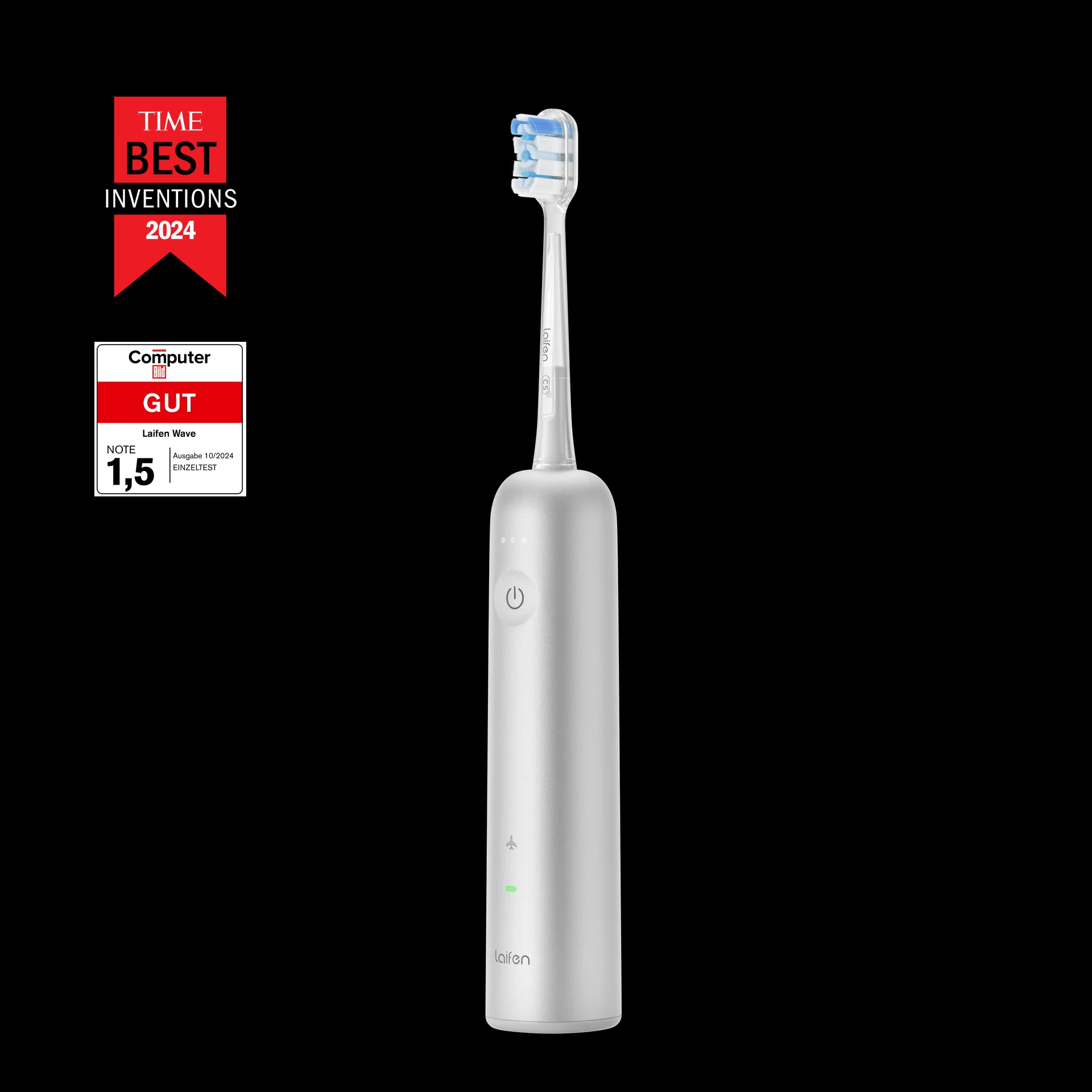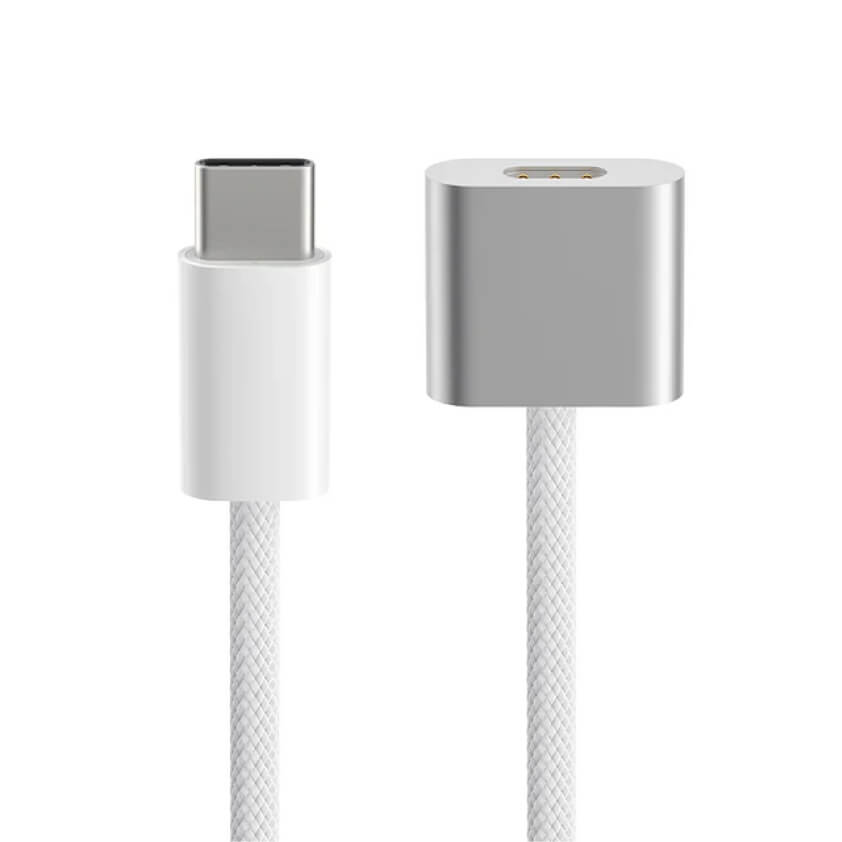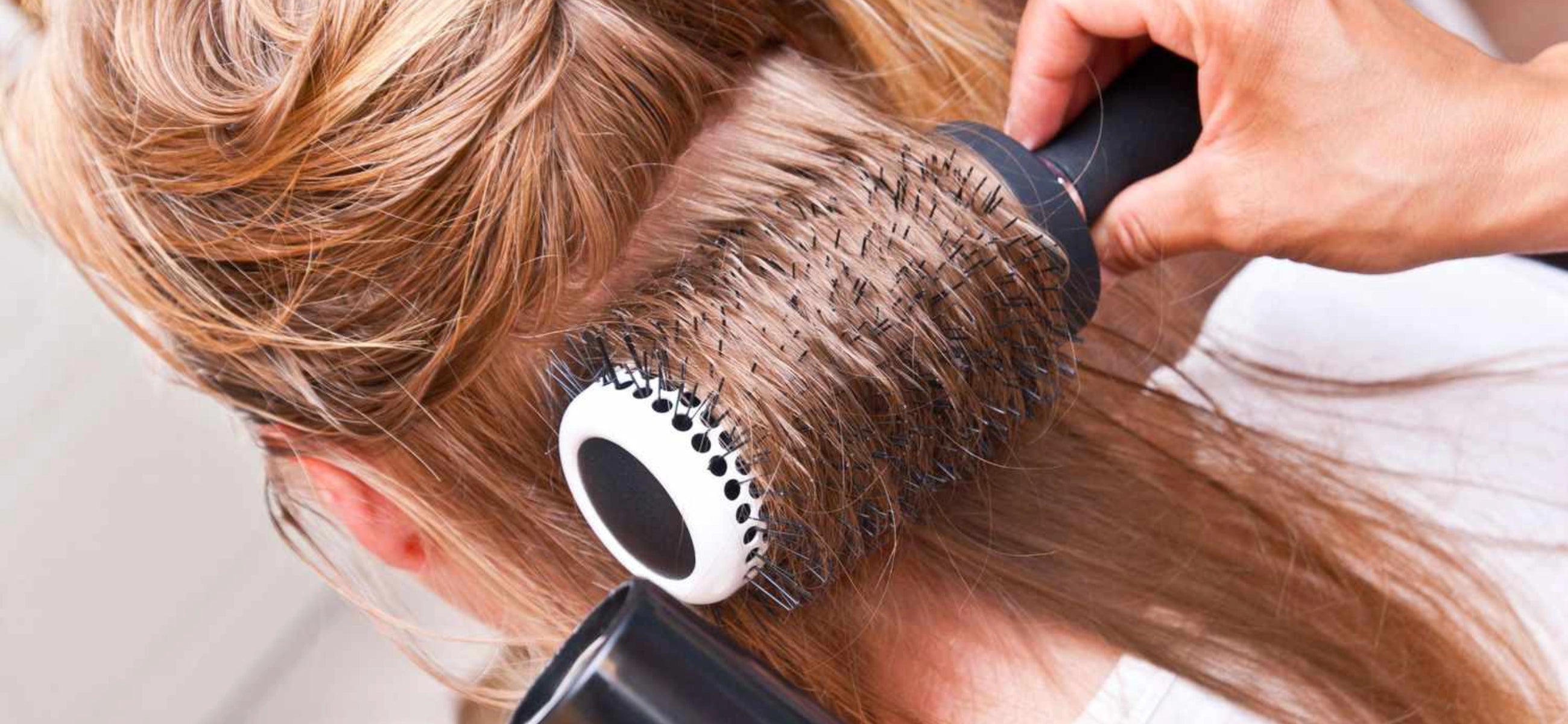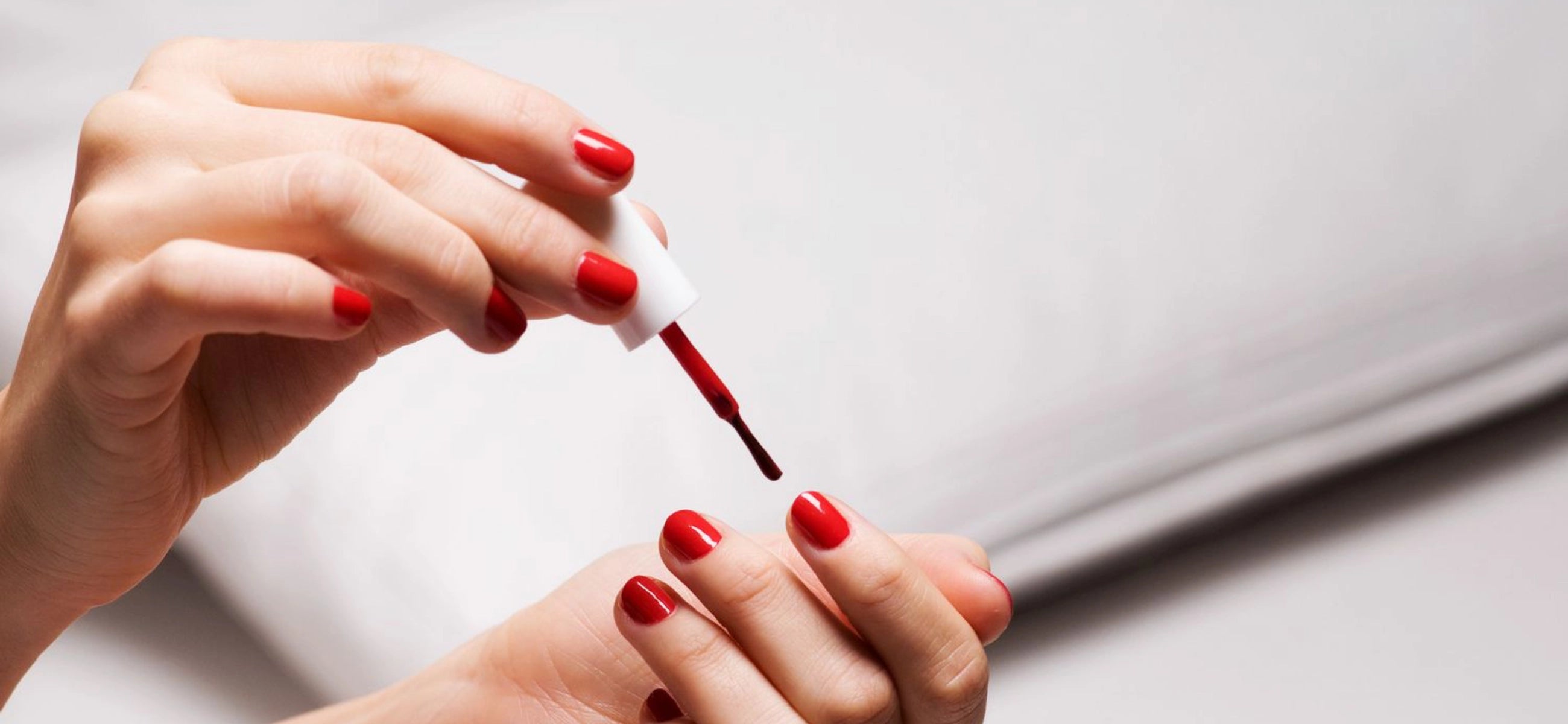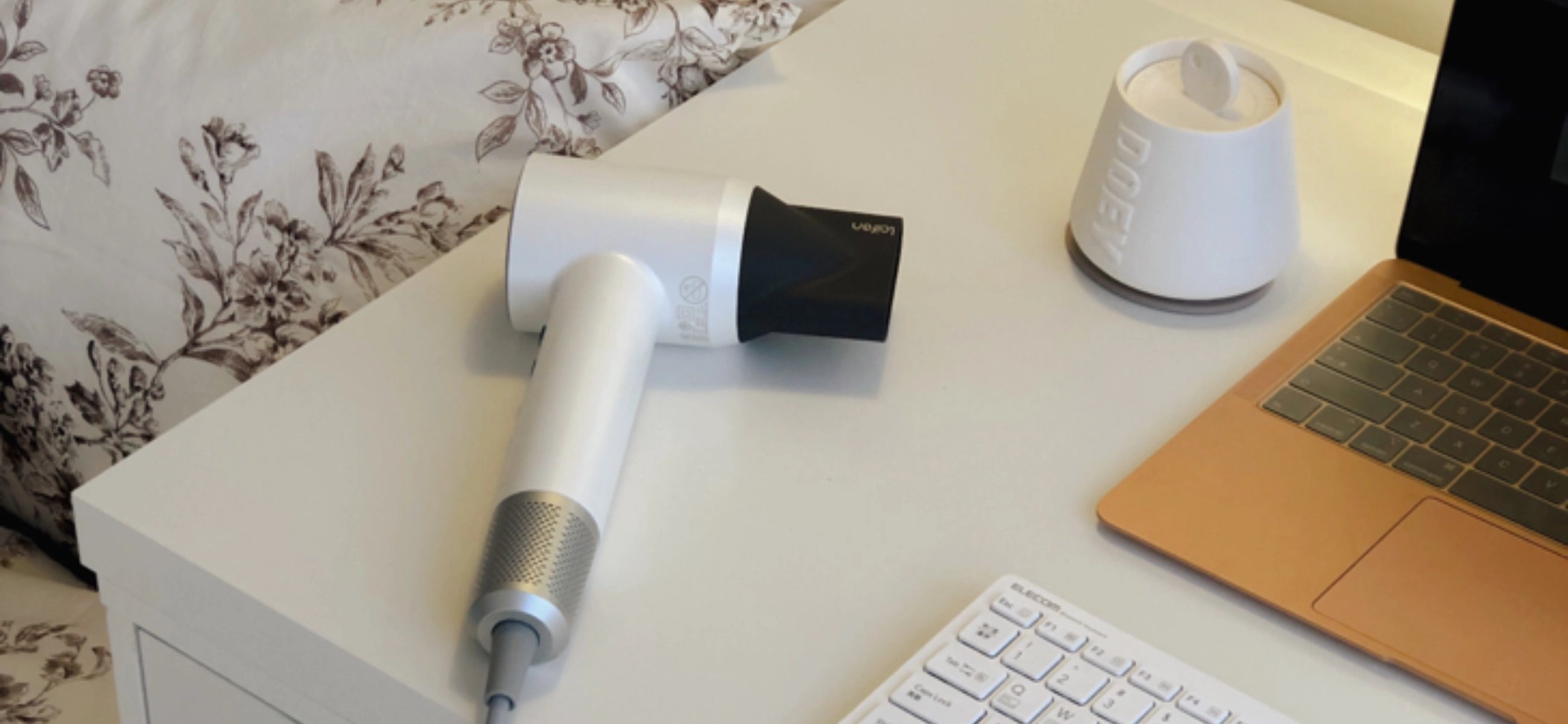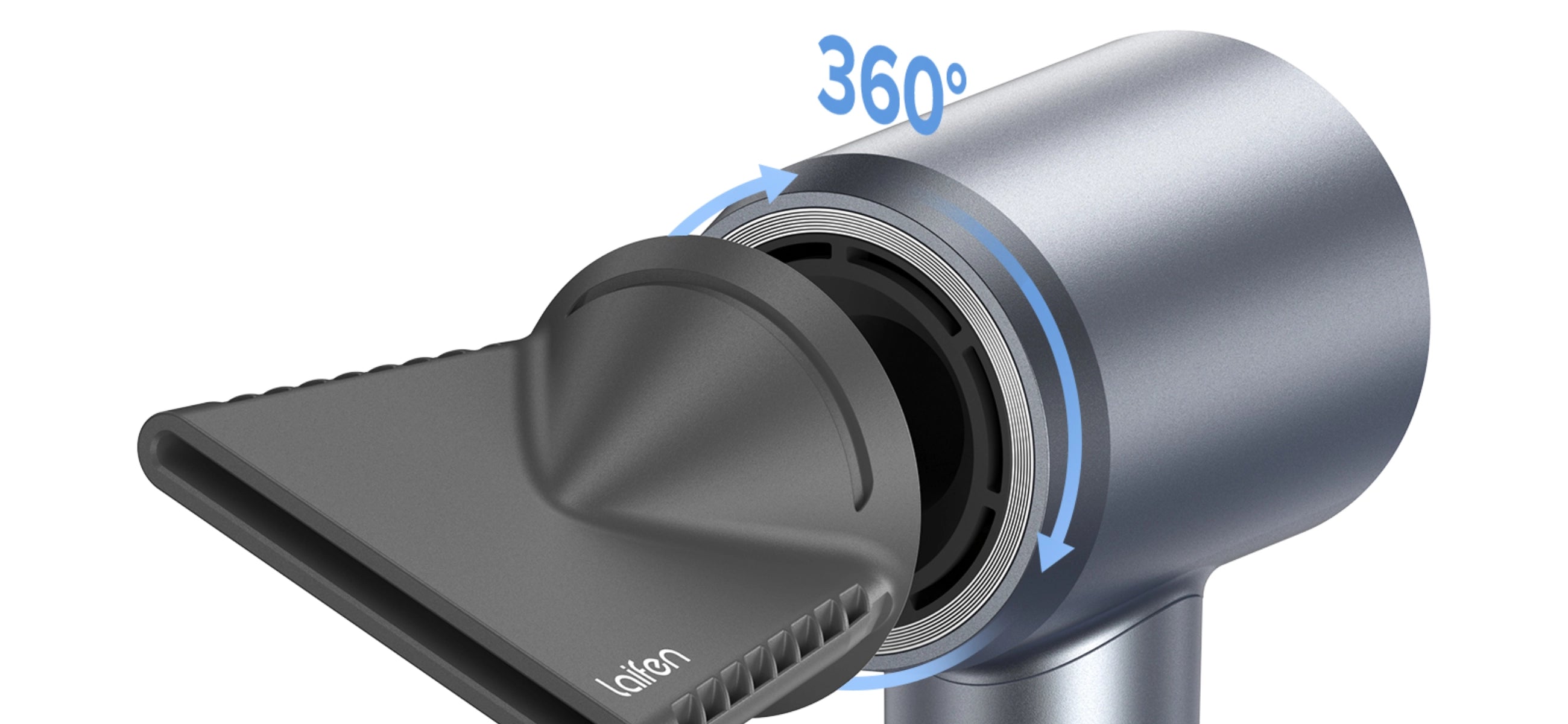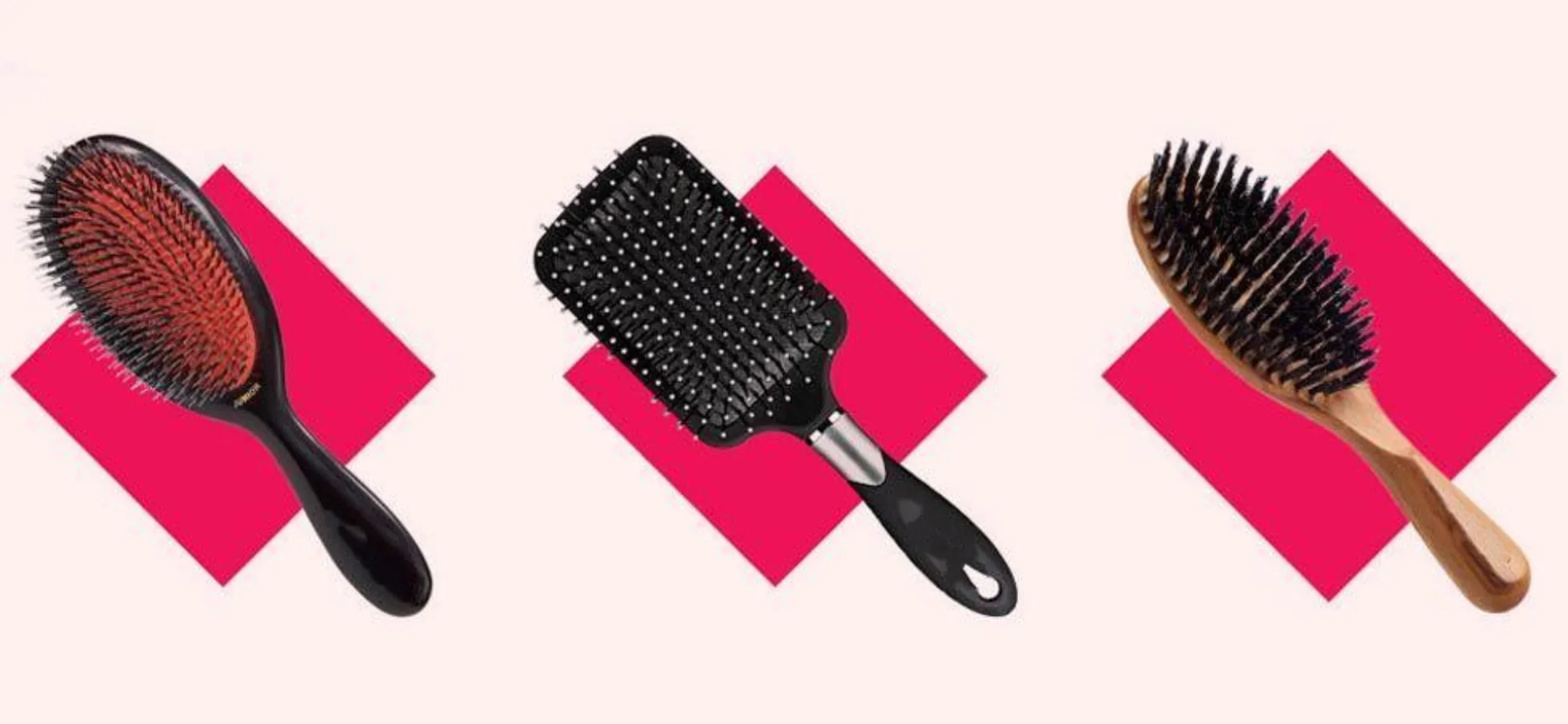
In this article
We all know to wash our hair, but have you ever stopped to wonder about the grimy battlefield that is your hairbrush? Every time you run that thing through your hair, it collects loose strands, scalp oil, product buildup, dust, and whatever mystery fluff is floating around your room. Let it sit too long, and your once-trusty brush turns into a lint-covered saboteur, redepositing all that gunk back onto your freshly washed hair.
Up next, we’ll introduce smart brushing techniques to you because if you’re going to do it, you might as well do it right.
1. Hair yank & toss
If your brush looks like it’s growing its own wig, it’s time for an intervention. Every time you brush, stray strands wrap around the bristles and create a cozy trap for dust, oil, and old product.
And after every few uses, take a minute to pull out the tangled mess. If it’s too stuck, grab the end of a rat-tail comb or a pair of scissors and gently lift the hair out.
2. Shampoo swirl
When your brush starts looking like it’s been through too much, it’s time for a proper rinse. Fill a bowl with warm water and add a squeeze of shampoo because hey, if it works for your hair, it works for your brush too. Swirl it around, and the bristles get fully drenched. The soapy water helps make built-up oil, styling products, and that weird gray fuzz that seems to appear out of nowhere. Let it sit for a few minutes, then rinse under warm water. Suddenly, your brush isn’t a crime scene anymore.
3. Vinegar purge
For the deep, deep clean, it’s time to bring out the big guns: vinegar and baking soda. This dynamic duo fizzes away the toughest grime and dissolves stubborn residue like a mini science experiment.
You can mix equal parts vinegar and warm water in a bowl, add a sprinkle of baking soda (watch it bubble like magic), then dip your brush in. Swirl, let it soak for 10 minutes, then scrub with a toothbrush if needed.
Just a warning that wooden brushes don’t love water, so for those, dip only the bristles and wipe the handle clean with a damp cloth.
4. Toothbrush scrubdown
Some dirt loves to hide. If your brush has tiny corners where dust and oil have been secretly gathering, it’s time for a targeted attack. Grab an old toothbrush, yes, your hairbrush gets its own tiny brush, and scrub between the bristles, around the base, and anywhere buildup might be lurking. If it’s really bad, dip the toothbrush in shampoo or a bit of vinegar water and scrub harder.
5. Quick-dry flip
Now that your brush is squeaky clean, the last step is making sure it dries properly. Too many people clean their brushes, then leave them bristle-up on the counter—big mistake. Water seeps down into the base, and before you know it, you’ve got mold growing inside your brush. You can flip it bristle-side down on a towel and let gravity do the work. If you’re in a rush, shake off excess water and place it near an open window or a fan for faster drying. Because honestly, a damp and moldy brush is not the hair secret anyone wants.
FAQs
Q1: How do you remove gunk from a hairbrush?
Yank out the trapped hair, then let the brush soak in warm soapy water. Scrub between the bristles with an old toothbrush like you’re uncovering ancient artifacts. Rinse, dry, and breathe easy knowing your brush is no longer a biohazard.
Q2: How do you get crud out of a hairbrush?
Crud: the less glamorous cousin of gunk. If your brush looks like it’s growing its own ecosystem, soak it in warm water with shampoo or vinegar. Attack the buildup with a toothbrush, scrubbing like your reputation depends on it. Rinse, dry, and enjoy a brush that isn’t secretly plotting against your hair’s freshness.
Q3: What will happen if you do not clean your hair brush?
Picture this: you wash your hair, feel all fresh, then swipe a filthy brush through it. Congrats, you just reintroduced grease, dust, and old product back onto your scalp. Not cleaning your brush = sabotaging your own good hair days.
Q4: What are the main types of hair brushes?
Hairbrushes have personalities. Paddle brushes detangle like a dream, round brushes make you feel like a salon pro, Denman brushes worship curls, and boar bristle brushes spread natural oils like a luxurious hair whisperer.
Q5: Which type of hair brush is hard to clean?
Round brushes. Hands down. They hoard hair and lint like a dragon guarding treasure. Also, boar bristle brushes—they love to trap oils, dust, and secrets. Cleaning them is a battle, but a worthy one.


